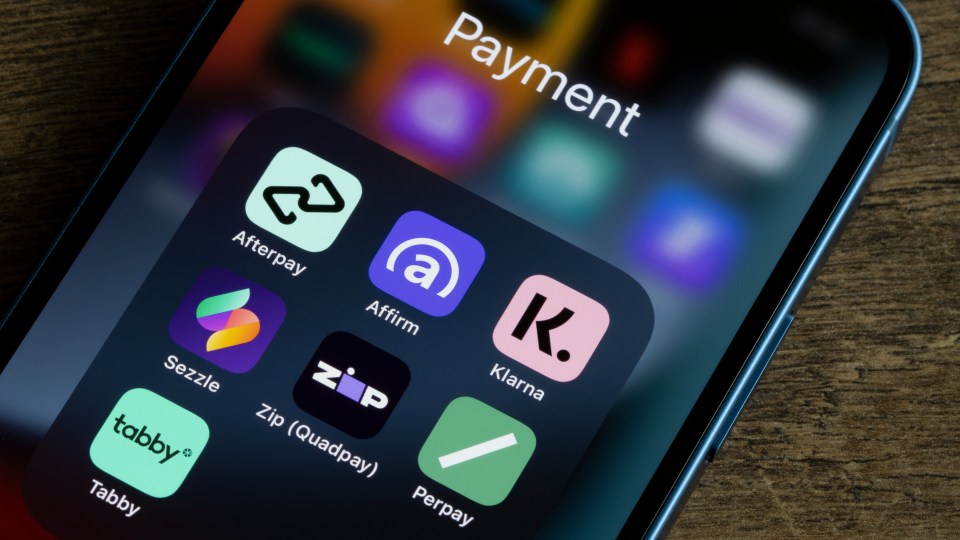HUGE changes to Buy Now Pay Later rules that will help protect customers have been confirmed by the government.
The new Labour government has published its response to a consultation on proposals to tighten up rules in the Buy Now, Pay Later (BNPL) sector.
BNPL is a type of credit scheme that allows shoppers to purchase items and spread the payments over a set period and is used by 10million Brits.
While the schemes are popular, they have remained largely unregulated, which has raised concerns about people falling into debt.
The government has now said that from next year BNPL firms will need to follow “consistent standards,” so shoppers know exactly what they’re signing up for.
This means firms will have to be clear and transparent about any late fees or if they could affect customers’ credit ratings and how.
They should also signpost customers towards debt help in any correspondence.
For consumers, that could look like upfront credit checks to make sure people can repay what they borrow.
Also, customers will have quicker access to refunds and the right to complain to the Financial Ombudsman.
The plans will bring the products under FCA regulation while ensuring they also adhere to a large proportion of the Consumer Credit Act and Section 75, which give shoppers various rights.
Lisa Webb, Which? Consumer Law Expert, said that research shows that many users “do not realise they are taking on debt or consider the prospect of missing payments.”
She added: “It’s good to see the government taking action to regulate BNPL firms and introducing affordability checks.
“The government also needs to ensure this includes greater marketing transparency and information about the risks of missed payments and credit checks.”
Proposals to regulate BNPL products were first touted in 2021 but faced repeated delays.
Last year, The Sun revealed the previous Conservative government had paused the plans over fears that it would drive BNPL firms out of the market during a tough cost of living crisis.
Then in October, the Treasury Tulip Siddiq exclusively told The Sun that the government had finalised its “bespoke” plans and intended to pass the legislation “as soon as possible” in early 2025.
The legislation bringing BNPL into regulation is set to be laid in Parliament today, May 19.
A consultation on the findings is set to take place with the rules expected to come into force next year.
How can I use BNPL without losing out?
The hope is that this new regulation will prevent people from being able to take on more than they can realistically afford to pay back.
But when used correctly, BNPL plans can be a useful way of managing your finances.
The products work in a similar way to other types of credit. The main difference is that they don’t charge interest.
You usually have to make payments by set deadlines over a period of time.
If you meet these repayment deadlines, you shouldn’t be charged any extra fees.
How to cut the cost of your debt
IF you’re in large amounts of debt it can be really worrying. Here are some tips from Citizens Advice on how you can take action.
Check your bank balance on a regular basis – knowing your spending patterns is the first step to managing your money
Work out your budget – by writing down your income and taking away your essential bills such as food and transport
If you have money left over, plan in advance what else you’ll spend or save. If you don’t, look at ways to cut your costs
Pay off more than the minimum – If you’ve got credit card debts aim to pay off more than the minimum amount on your credit card each month to bring down your bill quicker
Pay your most expensive credit card sooner – If you have more than one credit card and can’t pay them off in full each month, prioritise the most expensive card (the one with the highest interest rate)
Prioritise your debts – If you’ve got several debts and you can’t afford to pay them all it’s important to prioritise them
Your rent, mortgage, council tax and energy bills should be paid first because the consequences can be more serious if you don’t pay
Get advice – If you’re struggling to pay your debts month after month it’s important you get advice as soon as possible, before they build up even further
Groups like Citizens Advice and National Debtline can help you prioritise and negotiate with your creditors to offer you more affordable repayment plans.
